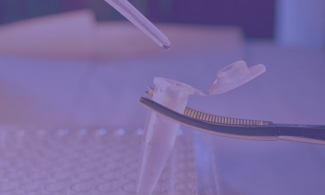
Revolutionising Bone Marrow Failure Syndrome treatment: The EMBRACE study provides tailored care for over 400 Australians
The Maddie Riewoldt’s Vision-funded Evaluating MultidisciplinaRy Bone maRrow fAilure CarE (EMBRACE) study has provided over 400 Australians with Bone Marrow Failure Syndromes access to an evidenced-based model of care that provides tailored treatment targeted to their individual needs.
EMBRACE measures the impact of providing Australian patients with bone marrow failure an accurate genetic diagnosis, up-to-date and comprehensive information about the disease, and access to expert care, treatment and the opportunity to participate in research.
One of the most crucial steps in treating patients with Bone Marrow Failure Syndromes is determining an accurate diagnosis so patients can access the treatment they need as soon as possible. Different Bone Marrow Failure Syndromes can be impossible to distinguish on standard laboratory assessments, and complex genetic testing is required to reach the correct diagnosis. Genomic testing as part of the EMBRACE trial has provided patients and families with the clarity they need along with access to the best treatments for their conditions.
An important outcome of this project was the development of an evidence-based model of care that has been informed by physicians and patients and is unique in Australia. Since the study started:
- 406 patients have accessed the EMBRACE model of care.
- 310 patients have received genomic testing to receive an accurate diagnosis.
- 37 patients were found to have inherited genetic mutations. Genetic mutations are changes in DNA sequences that can cause illness. Identification of such mutations is an important step in being able to provide patients with the best treatment.
- 89.5% of patients liked or strongly liked the overall care they received as part of their trial.
EMBRACE has already had success stories that highlight the incredible impact of this study. After a 10-year-old patient was diagnosed with Myelodysplastic Syndrome based on bone marrow biopsy, the patient was referred to Maddie’s Vision Centre of Research Excellence executive member Dr Lucy Fox for genomic investigation as part of the EMBRACE study. The EMBRACE team confirmed an underlying diagnosis of Shwachman Diamond Syndrome, which had predisposed the child to developing Myelodysplastic Syndrome. Thanks to the EMBRACE study, the patient will receive life-long care which takes into account his underlying Bone Marrow Failure Syndrome.
The EMBRACE study is a groundbreaking project that is changing the way we treat Bone Marrow Failure Syndromes in Australia. The project’s success has resulted in an evidence-based model of care that can be used across the country, providing patients and families with comprehensive expert care.
Related Articles
Federal Government awards $3M to inherited Bone Marrow Failure Syndromes research project
This is the most exciting research news for patients with inherited bone marrow failure....
Read moreScientific Advisory Committee – Call for new members
Maddie’s Vision is seeking two new members to join the SAC in 2024.
Read moreGrant Round 1 2020
Unfortunately, due to the COVID-19 pandemic and subsequent restrictions on all fundraising events and activities, our Grant Round 1 2020, planned to open on May 1, will not be proceeding.
Read moreGrant Round 1, 2021
Grand Round 1, 2021, opens February 1. Maddie's Vision is delighted to offer funding....
Read more




